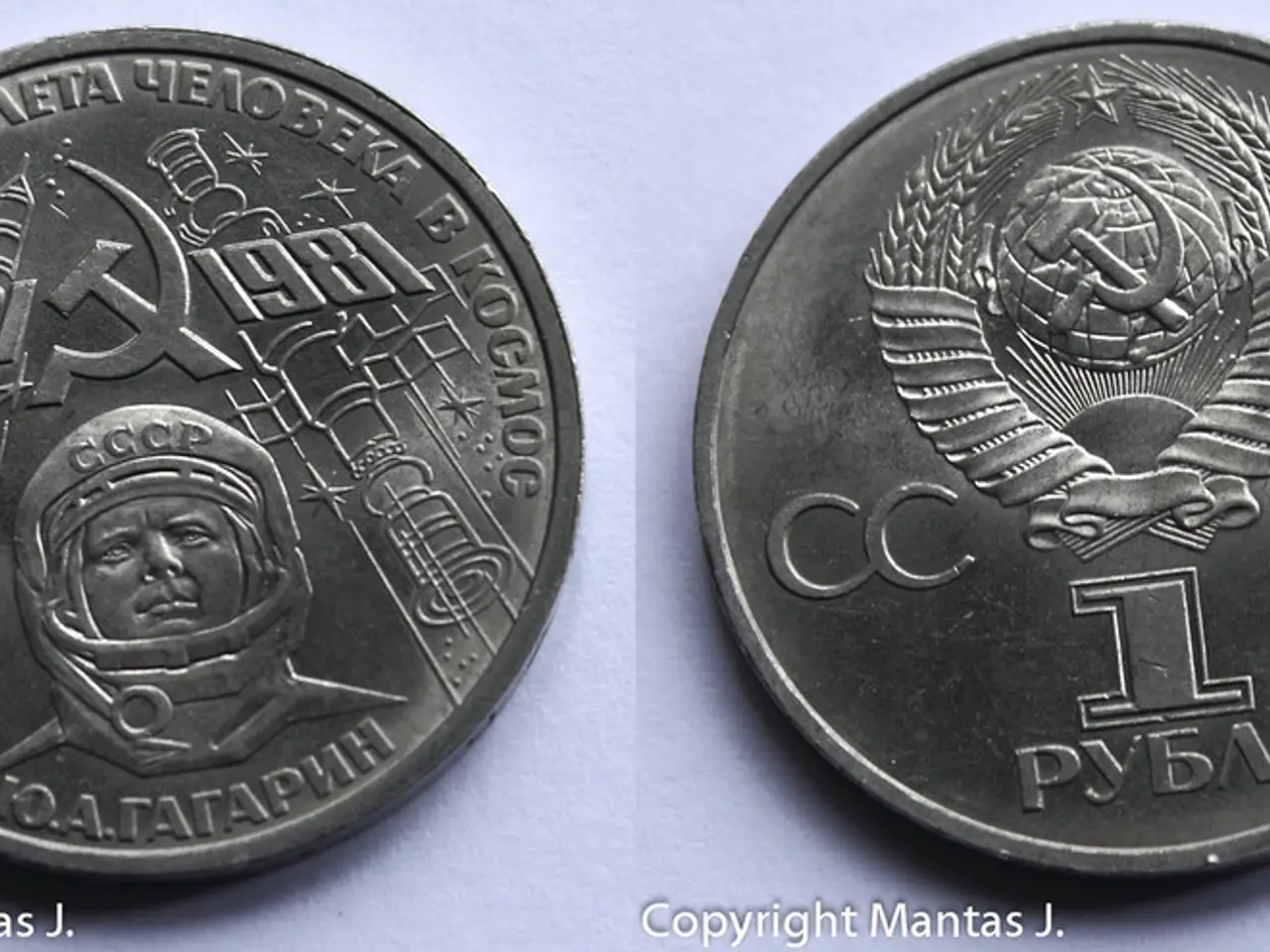Report: Presidential Advisory Group on Digital Assets Market Proposes Measures to bolster U.S. Dominance in Digital Financial Technology Innovation
On July 18, 2025, President Trump signed the historic GENIUS Act into law, marking the first-ever Federal regulatory framework for stablecoins. This move is part of a broader initiative by the Trump Administration to position the United States as a global leader in digital financial technology.
The President's Working Group on Digital Asset Markets, established by Executive Order 14178, has submitted a comprehensive report outlining key recommendations to achieve this goal. The report serves as a roadmap to make the United States the "crypto capital of the world."
The Working Group, consisting of officials throughout the Federal government, has proposed a range of measures to create a clear, fit-for-purpose regulatory framework, expand oversight, and foster innovation through legislative and agency actions.
One of the central recommendations is for Congress to enact legislation to eliminate regulatory gaps by granting the Commodity Futures Trading Commission (CFTC) authority to oversee spot markets for non-security digital assets and explicitly embrace decentralized finance (DeFi) technology for integration into mainstream finance.
The Securities and Exchange Commission (SEC) and CFTC are also urged to use their existing powers to provide immediate regulatory clarity on digital asset trading, custody, registration, trading platforms, and recordkeeping. This includes establishing safe harbors and regulatory sandboxes to allow innovative products to reach consumers without undue bureaucratic delays.
The SEC is encouraged to consider exemptions or "innovation exemptions" for certain digital asset activities, enable trading of non-security digital assets on registered platforms soon after initial distribution, clarify custody rules, and adapt securities regulations to tokenization and DeFi service providers.
The CFTC is recommended to clarify rules related to leveraged spot commodity transactions in digital assets, classification of digital assets as commodities, registration requirements for DeFi activities and decentralized autonomous organizations, acceptance of digital asset collateral, and allow blockchain for recordkeeping.
To modernize banking policies, the Working Group recommends ending discriminatory practices against digital asset companies, reversing policies like "Operation Choke Point 2.0" that led to widespread debanking of crypto businesses.
In terms of consumer protection and market growth, the report emphasizes the need for regulatory clarity, innovation support, and the prevention of the misuse of authorities to target lawful activities of law-abiding citizens. It also recommends reinforcing the importance of self-custody and clarifying the Anti-Money Laundering/Countering the Financing of Terrorism (AML/CFT) obligations of actors within the decentralized finance ecosystem.
The widespread adoption of dollar-backed stablecoins is seen as a means to modernize payments infrastructure and allow the United States to move away from costly and outdated legacy systems. To this end, digital assets are recommended to be added to the list of assets subject to wash sale rules.
Lastly, the Treasury and appropriate regulators are advised to provide clarity regarding Anti-Money Laundering obligations and reporting. Congress is encouraged to enact legislation that treats digital assets as a new class of assets subject to modified versions of tax rules applicable to securities or commodities for Federal income tax purposes.
Collectively, these steps aim to ensure regulatory clarity, innovation support, consumer protection, and market growth, positioning the U.S. as the global leader in digital asset development. The report also underscores the need to protect citizens' privacy and reinforces the importance of Congress taking additional action to pass the Anti-CBDC Surveillance State Act to codify the provisions of the President's Executive Order banning Central Bank Digital Currencies in the United States.
[1] The White House - Fact Sheet: Strengthening the U.S. Financial System by Ensuring Greater Safety and Soundness in Digital Asset Markets
[2] CFTC - Press Release: President Trump Signs the GENIUS Act into Law
[3] SEC - Press Release: SEC and CFTC to Provide Immediate Regulatory Clarity on Digital Asset Trading
[4] Treasury - Report: A Roadmap to Making the United States the "Crypto Capital of the World"
- To create a clear regulatory framework for digital assets in the United States, the Commodity Futures Trading Commission (CFTC) is proposed to be granted authority over spot markets for non-security digital assets and to embrace decentralized finance (DeFi) technology.
- The Securities and Exchange Commission (SEC) is advised to provide immediate regulatory clarity on digital asset trading, custody, registration, trading platforms, and recordkeeping, and to consider exemptions for certain digital asset activities.
- The Working Group has recommended modernizing banking policies by ending discriminatory practices against digital asset companies, preventing the misuse of authorities to target lawful activities, and adding dollar-backed stablecoins to the list of assets subject to wash sale rules.




